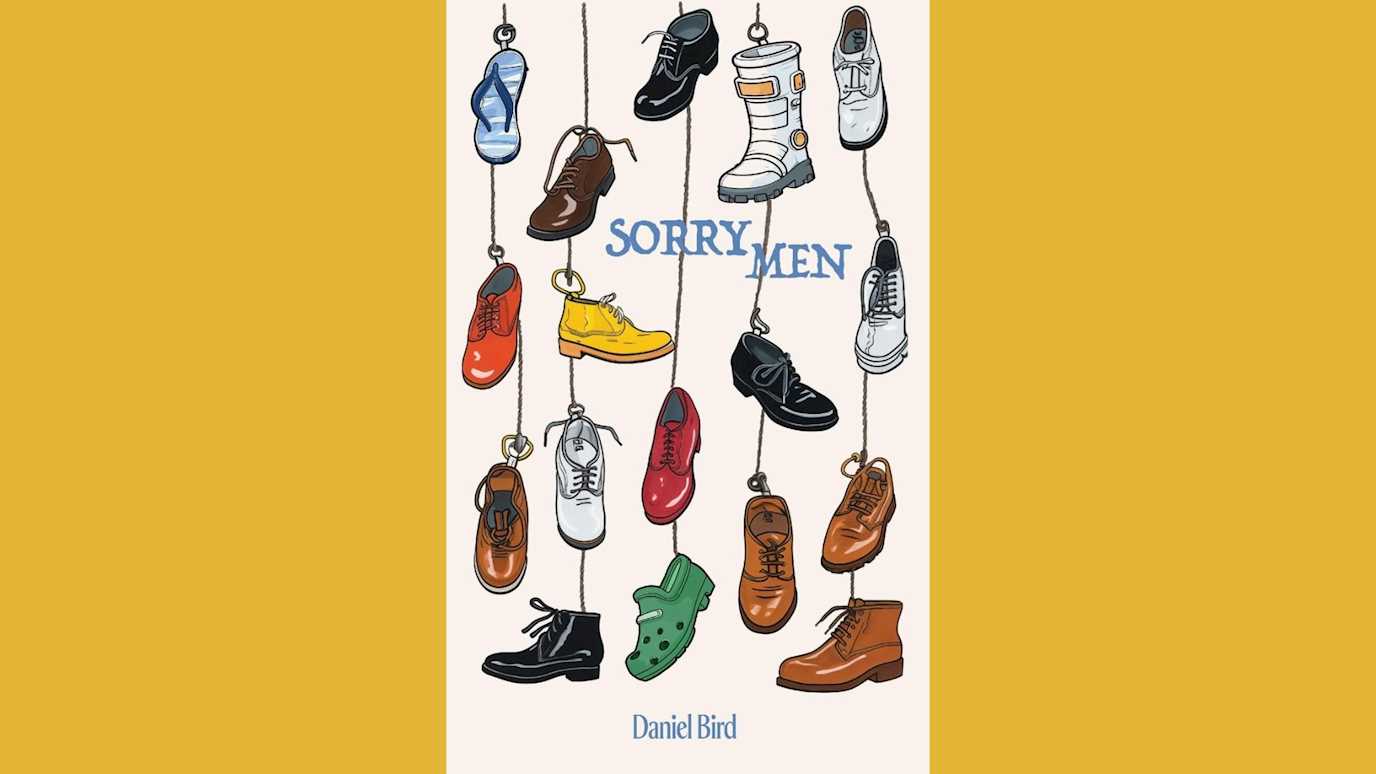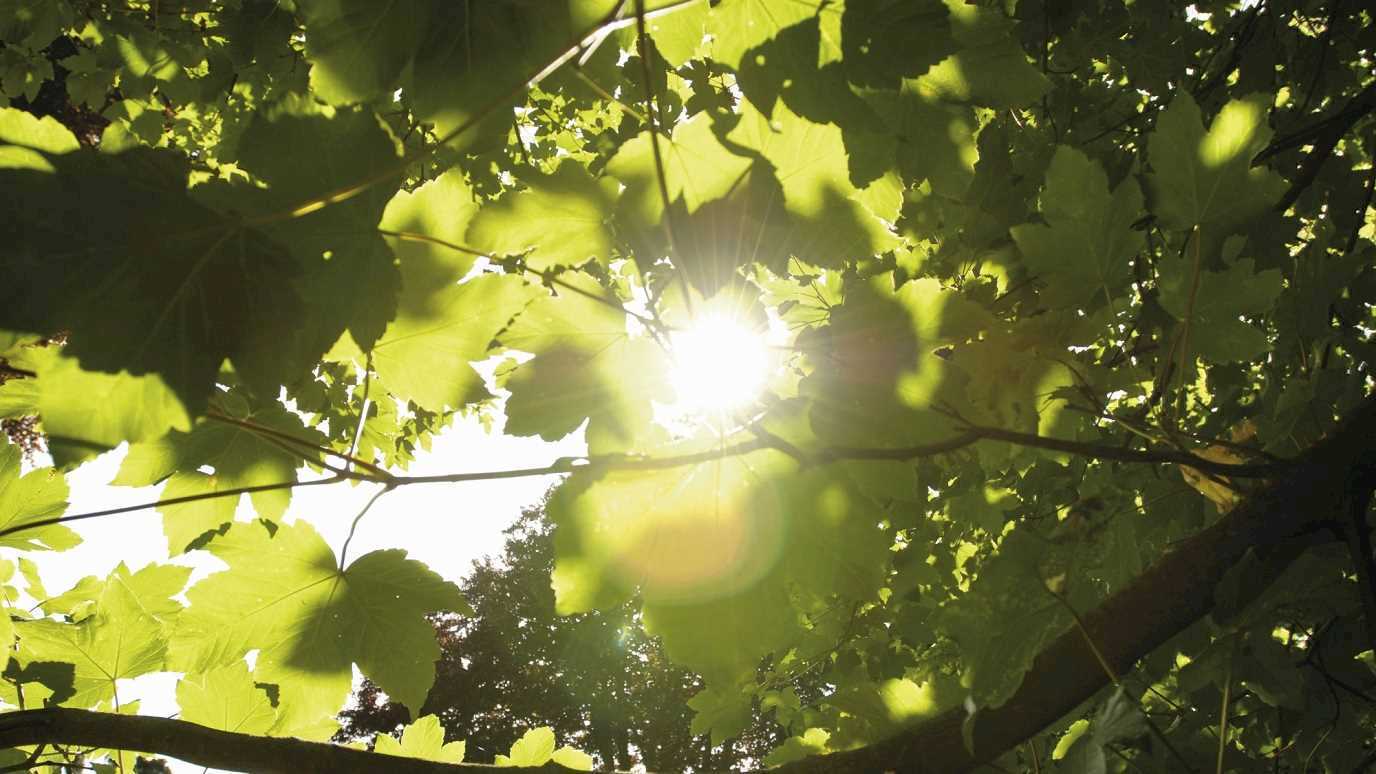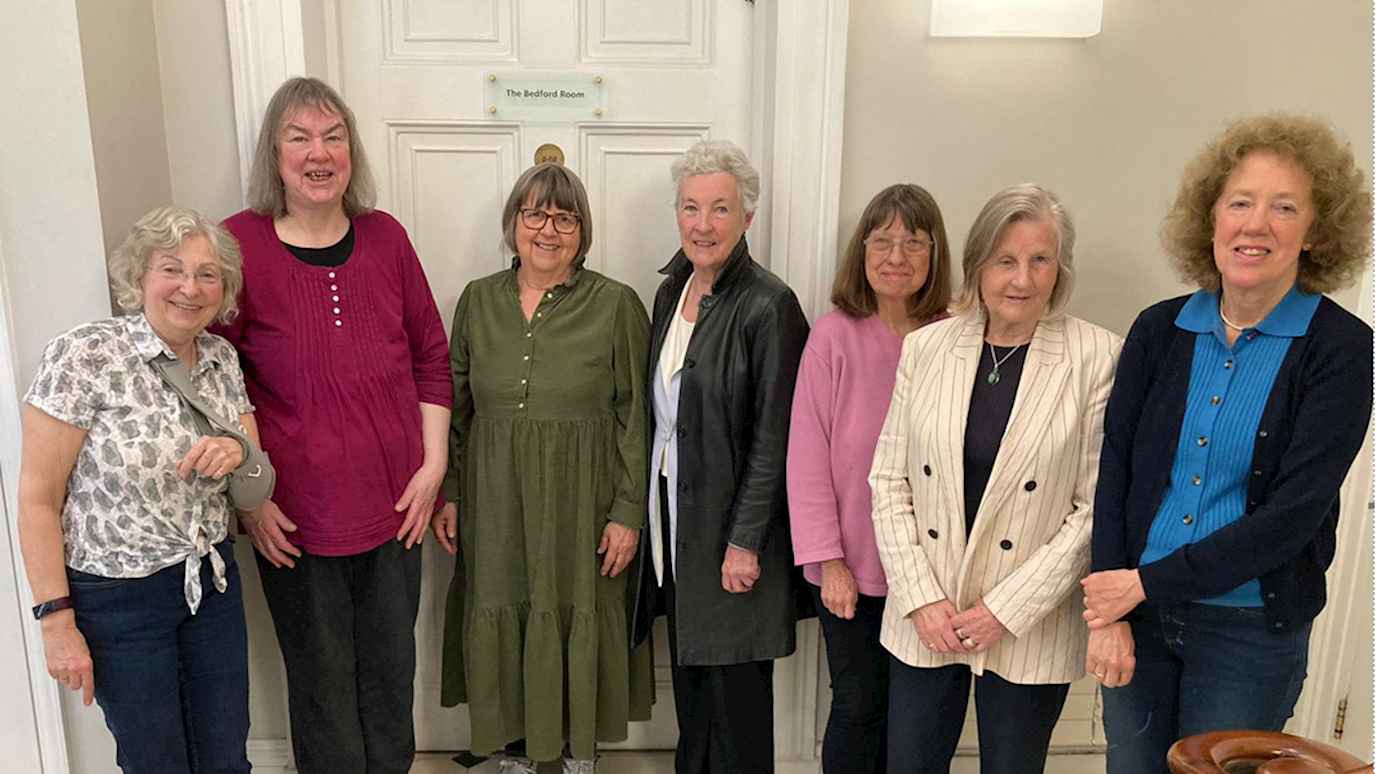On the 75th anniversary of VJ Day, John M C Healy shares the experiences of his father, John F Healy (former Dean of the Faculty of Arts, Professor and Head of Classics at Royal Holloway), during and after the Second World War.
With thoughts of an idyllic childhood, halcyon schooldays and callow youth in the dim distant past, imagine you are coming to the end of your first year at university aged seventeen when suddenly “Call Up” papers appear with your name on announcing that you must report to Warley Barracks in Essex on an allotted day where a medical and basic training would occur prior to being posted to a theatre of war.
Theatre of war for a young John F Healy meant Japan, a daunting prospect considering the savage, determined fighting of the country’s troops. After further rather rigorous preparation as well as learning the language at Wentworth Woodhouse, Rotherham, one of many splendid stately homes requisitioned during the Second World War and Headquarters of the Army Intelligence Corps of which he was immensely proud to be a part, the plan was to send him along with several others to India prior to dropping them behind enemy lines to infiltrate and gain knowledge from the natives! Fortunately, they were spared when events took a turn with the United Kingdom giving the United States the blessing to release two atomic bombs nicknamed Little Boy on Hiroshima and Fat Man on Nagasaki. Both cities were devastatingly flattened almost in entirety and the population vaporised with very few exceptions to the point that a surrender of hostilities took place on 14th August 1945 with the following day becoming Victory in Japan day (now 75 years ago).
After VJ day on 15th August 1945 in the same year the British executive under prerogative powers of a special Royal Warrant commissioned the Singapore Trials for national war crimes committed by the Japanese which the military would have the responsibility for running. In this one location alone some eight courts presided over one hundred and thirty sets of proceedings between 21 January 1946 and 12 March 1948. Post-war conditions, though, in Singapore posed many challenges to the organising of these trials as it did with the background detailed investigations conducted out of the Goodwood Park Hotel as there was a shortage of food, basic necessities, and qualified personnel.
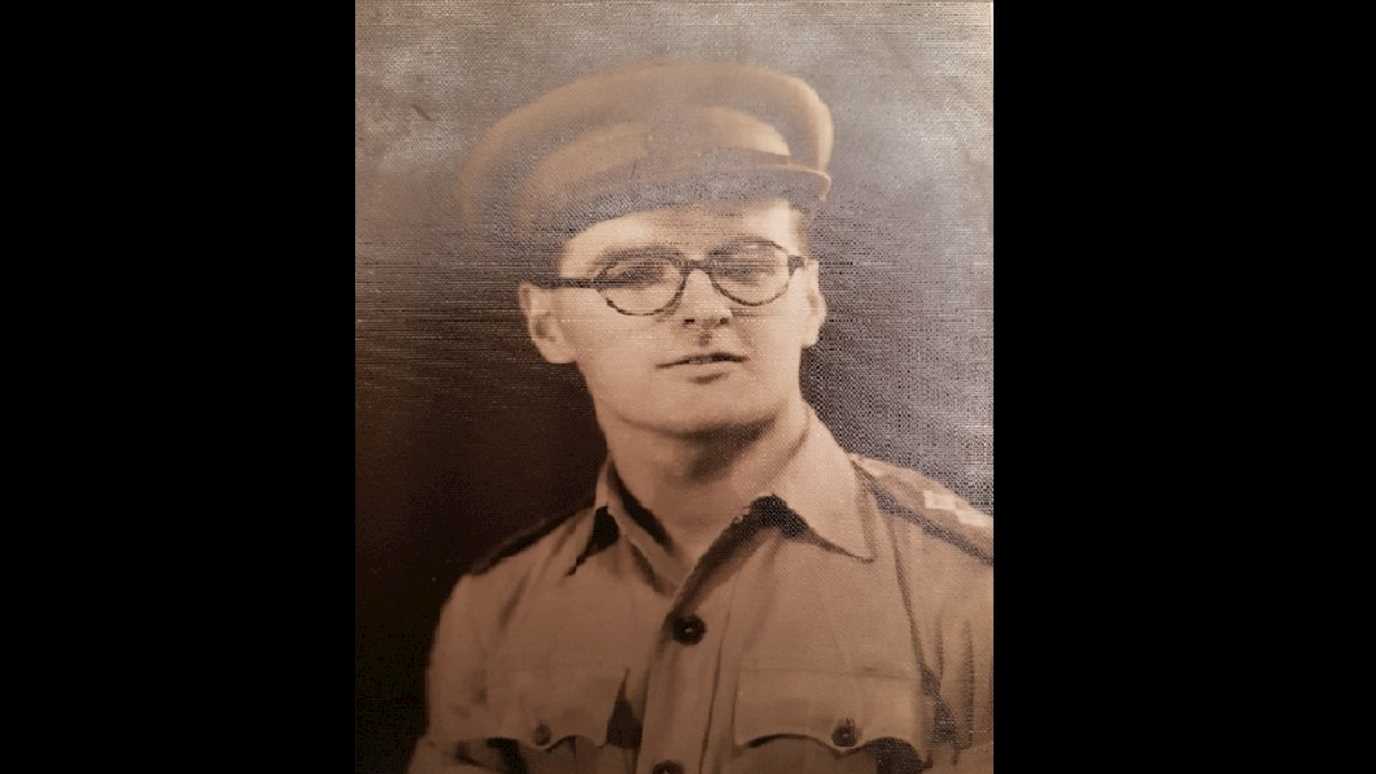

Captain (later Professor) John F Healy.
Qualified personnel was the category into which my father fell with his rapidly acquired knowledge of Japanese and I remember him telling me that along with appalling treatment of prisoners of war (POWs), the inhumanity towards populations of men, women and children these grotesque events happened over an unbelievably widespread area of Asia encompassing Papua New Guinea, Palau, Indonesia, Vietnam, Cambodia, Malaysia, Brunei, Thailand, Myanmar, and the Andaman and Nicobar Islands.
The Singapore Trials effectively came under five headings the first being Multiple Civilian Deaths such as Operation Sook Ching and the mass slaughter of non-combatants on the Andaman and Nicobar Islands. Secondly there was Illegal Killings carried out in awful fashion by Japanese military and civilian personnel who were prosecuted for directly or indirectly causing the deaths of individual POWs and citizens. Individual POWs and citizens who were forced to work relentlessly on large scale projects such as the notorious Burma-Siam Railway until their life was sometimes extinguished from them were designated Labour-Related Cases. Next there were a number of trials which dealt with the hideous abuse and ill-treatment that did not result in deaths of the victims such as the Kempeitai torture. That just left the last type which addressed the cruelty and neglect of POWs and civilian detainees in prisons and camps, such as Changi Prison, Sime Road Prison, Outram Road Gaol, and Selarang Barracks.
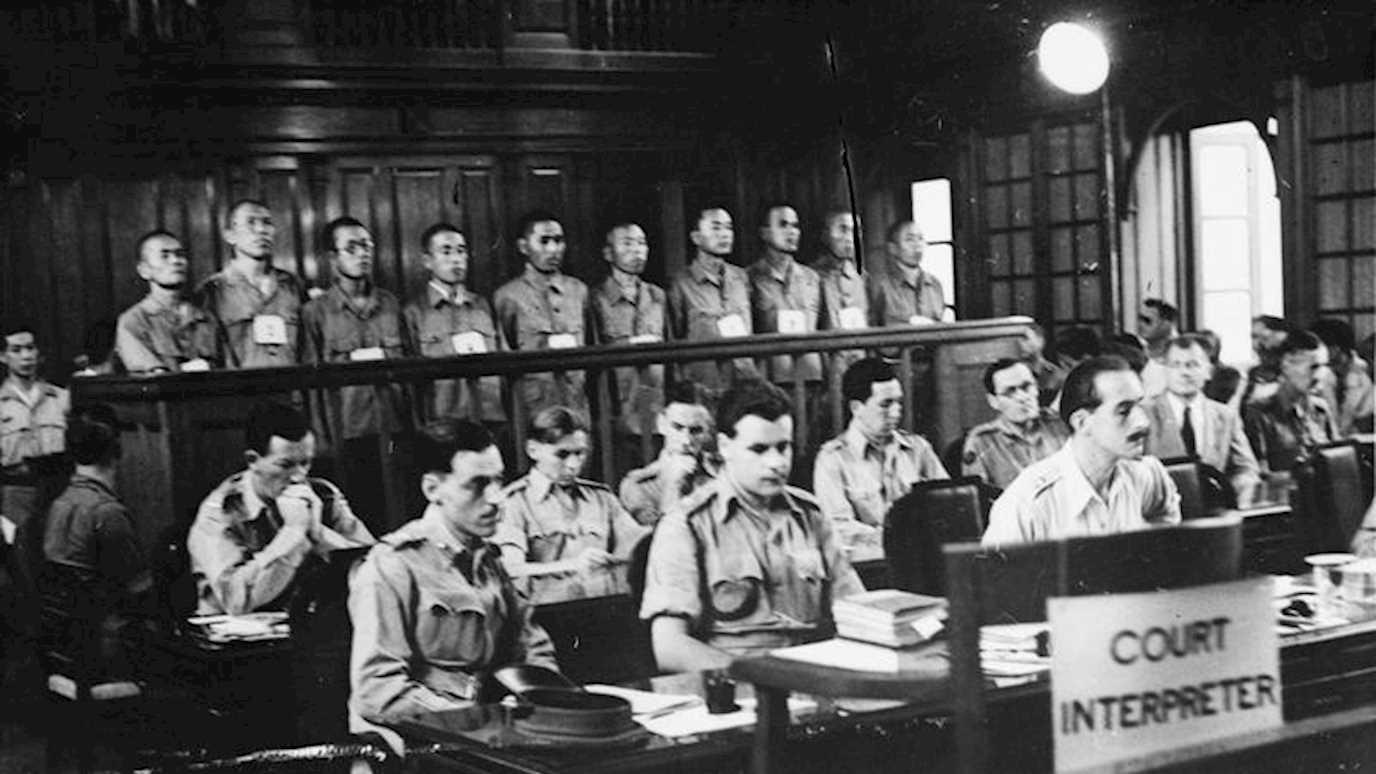

Captain John F Healy pictured far right In front of the wooden balustrade of the Dock.
Listening to long hours, days and months of testimony was mentally as well as psychologically gruelling and required a strong constitution due to the absolutely horrific and incomprehensible atrocities carried out by the accused who held diverse ranks and positions. In his role as one of a number of interpreters my father would also remark to me that getting the translation correct was so critical that it could mean the difference between apportioning guilt or innocence and maybe a sentence of death or life imprisonment.
All this was a far cry from being a Classics student at Cambridge. However he had maintained his connection with there by deciding to enter their Greek Verse Competition back in 1944 and won it. People always thought this was an impossibility as he was on active service. Light relief additionally came in the form of dividing one’s precious free time between the officers’ mess, painting pictures of buildings and landscapes, visiting and photographing places of interest or writing home.
Home and demobilisation from serving King and Country would eventually be reached on board the troopship MS Dilwarra. That journey provided an opportunity for much contemplation over whether he could just pick up where he had left off starting his second year as an undergraduate at Trinity College, Cambridge and indeed how difficult that was going to be. Equally challenging was coming to terms with your existence being changed forever, a topic that could not readily be discussed with anyone on top of the realisation you would often be drawn to reflect on having listened over three and a half years to shockingly gruesome and harrowing war crimes testimonies the stuff that horror movies are made of.
My father always feared reprisals from either relatives or others connected with those tried and instructed my mother and later me always not only to look out for strange people but also to check who was at the front door before opening it. The serious aspect aside whilst out on long walks at home or day trips it was apparent to me that although he definitely hankered after his time in the army, completing his degree and PhD was more important so he could pursue a career path which would ultimately see him doing twenty four years’ service as Dean of the Faculty of Arts, Professor and Head of Classics at somewhere he enjoyed lecturing and loved greatly I.e. Royal Holloway College!
A Bursary is awarded by the Classics Department in his name each year.
Submitted by John M C Healy










